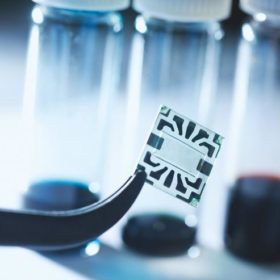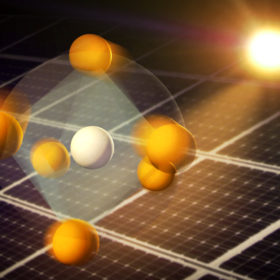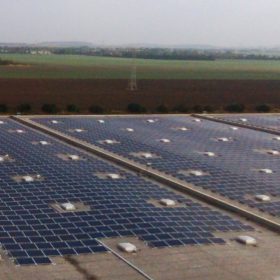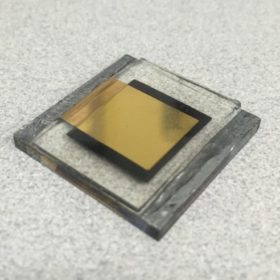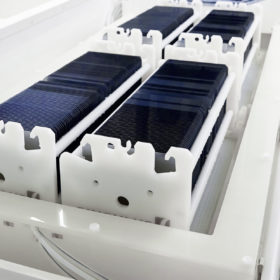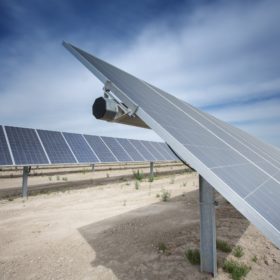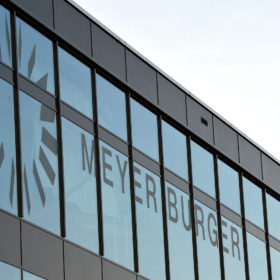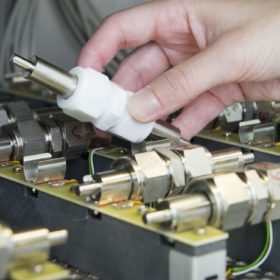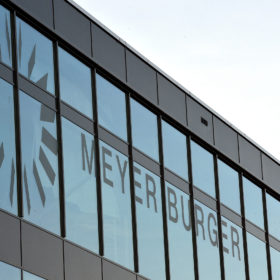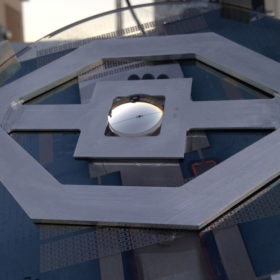MIT researchers develop ‘any surface’ solar cell
A team of scientists from the Massachusetts Institute of Technology Energy Initiative has developed a flexible, transparent solar cell, using low-cost organic materials and graphene. The researchers say this cell could turn virtually any surface into a source of power generation.
Stanford & DOE research brings insight into perovskite efficiency
Scientists at the Department of Energy’s SLAC National Accelerator Laboratory have published research revealing unusual atomic motions in perovskite materials exposed to light. The discovery, says Stanford, could prove crucial to further increasing the efficiency potential for perovskite solar cells.
GCL to supply modules to IBC Solar
German based PV systems provider IBC Solar has announced a partnership deal with solar manufacturing giant GCL System Integration Technology. The first modules supplied by GCL are expected to be delivered in September.
UNIST achieves 22.1% efficiency in perovskite solar cell
Researchers at South Korea’s Ulsan National Institute of Science and Technology (UNIST) announced a new world for efficiency in hybrid inorganic-organic perovskite solar cells, at 22.1%.
VDMA: solar equipment orders increase 328% in Q1
A report published by German engineering federation VDMA reveals strong demand for solar production equipment, with order intake in the first quarter of 2017 tripling over the previous quarter. The book to bill ratio of orders to delivered systems hit the ‘very high’ level of 4.4 for the first quarter of 2017
BayWa r.e. sells 20 MW project in Australia
German project developer BayWa r.e. today announced that it will sell the 20 MW Hughenden solar plant, located in Queensland, to Lighthouse Infrastructure, an Australian specialist in infrastructure investments.
Meyer Burger receives new equipment order worth CHF 22 million
Swiss PV equipment supplier Meyer Burger has received a further order for its MAiA PERC production platform SiNA cell coating system from an existing customer based in Asia. The combined contract for both technologies amounts to CHF 22 million ($23.2 million).
Organic electrode material could boost lithium ion capacity
Researchers at Germany’s Helmholtz Institute have developed a new electrode material which could improve the capacity and charge/discharge speed of lithium-ion technology, as well as reducing for costly cobalt in the batteries.
LONGi Solar first to place order for new Meyer Burger tool
Swiss equipment supplier Meyer Burger today announced the launch of its new MAiA EVO system, and the receipt of the first order for the system from PERC manufacturer LONGi Solar Technology. The tool is set to be delivered in the second half of 2017.
U.S. university CPV system outperforms silicon by 54% in test
A single-cell concentrating photovoltaic system developed by researchers at Penn State University reportedly reached 30% efficiency, and generated 54% more energy during a two-day test than a commercial silicon solar in the same conditions.

